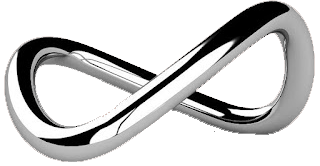Vivo en un pequeño pueblo de la ribera del Xúquer (Júcar), a los pies de la Sierra de Corbera, el primer contrafuerte montañoso que encontramos desde el mar hacia el interior y desde donde se ve la cumbre del Cavall Bernat, no la más alta, pero sí la más emblemática y conocida y la Creu del Cardenal.
Realmente toda mi ascendencia, hasta donde conocemos, es valenciana, pero mis abuelos fueron emigrantes, una familia humilde de labradores desplazados hasta tierras andaluzas. Mi abuelo estuvo cuarenta años haciendo de aquel pedazo de tierra seca y estéril, junto con cientos de valencianos que siguieron la misma ruta, campos de arroz con sus manos. De hecho él decía que era mitad hombre y mitad pez porque había pasado la mitad de su vida dentro del agua de aquellos campos. Si habéis leído el libro Cañas y Barro o La Barraca de Blasco Ibáñez sabréis a qué tipo de trabajo me refiero o incluso aquellos que hayáis vivido esto mismo que os cuento.
Me dejaron caer allí, en medio de aquellos surcos y así crecí escuchando hablar valencià en casa y en la calle castellano. Con el tiempo fuimos volviendo todos, yo a los 3 años ya estaba entre naranjos para entrar en el colegio. Mis abuelos volvieron, a morir en la tierra de sus padre. Todos volvieron.
Desde la ventana donde escribo se ven todos los campos de arroz hasta el mar y los vemos cambiar a cada poco de aspecto. Hace tan solo unos meses, por mayo, abrieron las compuertas que conectan acequias con campos y dejaron entrar en ellos el agua hasta cubrirlos. Era un espejo inmenso que reflejaba nubes de días claros y en los días de tormenta rayos. Tan rápido crece el arroz y comienzan a despuntar las briznas sobre el cristal líquido que nos sorprendemos sistemáticamente, año tras año. Todo se transformó en una verde pradera, con olor a clorofila rápidamente. Después el arroz creció y lo vimos con nuestros ojos madurar y tornarse amarillo-dorado. En setiembre la siega y la quema de rastrojos en los campos…así todos los años…siempre igual y siempre diferente. Este pedazo de geografía me conecta con mi afortunada infancia y la inocencia que la acompañaba.
Mañana por fin lanzaré la campaña de Verkami para este nuevo disco que comenzó a gestarse mucho tiempo atrás, quizá antes de que sintiera por primera vez el olor de esos tallos recién despuntados, quizá antes de que mi padre me acunara amorosamente entre los brazos antes de ir a hundirse hasta la rodilla en el agua de esos campos, quizá antes de que él y mi madre pasearan juntos, cogidos de la mano, entre los senderos que los bordean y hablaran tímidamente de pasar juntos la vida, el resto de sus años.//
Rice
I live in a small village at the banks of the river Júcar, at the foot of the Sierra de Corbera, the first mountain range which separates the sea from the inlands.
All my descent is from Valencia, but my grandparents were emigrants, a humble family of laborers, displaced from Al Andaluz. My grandfather spent 40 years working on yonder dry and barren piece of earth together with hundreds of Valencians sharing the same fate, working on rice fields bare handed. “In fact I am half man half fish”, he used to say, “because I worked half my life in the waters of those fields.” If you read the books by Blasco Ibáñez you understand what kind of work I am talking about.
And there I was dropped, right in the middle of those grooves, growing up speaking Valencian at home and Spanish in the streets. In the course of time everybody returned, me, at the age of tree, between orange trees and ready to go to school. My grandparents returned to the lands of their ancestors to die there. Everybody returned.
From the window where I sit and write I see all the rice fields spreading from here to the sea, and you can watch them change little by little.
Just a few months ago, in May, they opened the watergates which connect the irrigation ditches with the fields to flood them. What a immense mirror they are which reflect clouds on clear days and lightnings if there are thunderstorms. How fast did the rice grow, how fast did the stems emerge over the crystal waters, something that surprises us year after year. Everything transforms into a green meadow, and after that the rice grows and we can witness with our own eyes how it ripens and turns into a golden yellow color. In September they mow and burn the stubbles, like every year, always the same and yet so different. That special piece of earth reminds me of my happy childhood and all the innocence connected with.
Tomorrow finally I will launch the crowd funding campaign to finance my new CD, a undertaking which began a long time ago, maybe even before I absorbed the odor of the freshly cut blades for the first time, maybe before my father affectionately rocked me in this arms, before sinking knee deep in those waters, and maybe even before father and mother started to stroll together alongside those paths, holding hands, and shyly talking about spending their life together, for the rest of their years.
